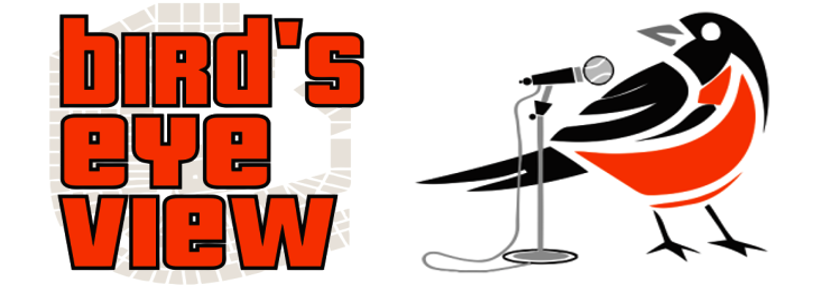Adam Jones Gets Brainy with Critics
After two straight losses to the Cleveland Indians on Friday and Saturday, Adam Jones went all classic reference on his Twitter followers the following morning. After O’s fans got too close to the ledge, and for venomous on social media, Jones had this to say:
"The Man in the Arena" T. Roosevelt
— 10 (@SimplyAJ10) August 17, 2014
If you’re not familiar with the quote, it’s a reference to a Theodore Roosevelt speech entitled “Citizenship in a Republic,” and basically comes down to this “the guy who sticks his neck out is the one who can talk – the critic who sits safely on the sidelines can shove it.”
OK, not particularly scholarly, but that’s the gist of it. The quote from the speech Jones references is this one:
It is not the critic who counts; not the man who points out how the strong man stumbles, or where the doer of deeds could have done them better. The credit belongs to the man who is actually in the arena, whose face is marred by dust and sweat and blood; who strives valiantly; who errs, who comes short again and again, because there is no effort without error and shortcoming; but who does actually strive to do the deeds; who knows great enthusiasms, the great devotions; who spends himself in a worthy cause; who at the best knows in the end the triumph of high achievement, and who at the worst, if he fails, at least fails while daring greatly, so that his place shall never be with those cold and timid souls who neither know victory nor defeat.
OK, now you can see what Jones is getting at, right? This quote is probably tacked to the bulletin board of every locker room in sports – from high school to professional leagues. Athletes who are accustomed to having their efforts on the field broken down and criticized by those who do not actually enter “the arena” probably connect with the quote.
But the speech is much longer than the single quote. And it’s pretty awesome. As much as it speaks to “the man in the arena” to deal with that criticism, I find the passage that precedes this famous quote to be pretty good advice for a fan base:
Let the man of learning, the man of lettered leisure, beware of that queer and cheap temptation to pose to himself and to others as a cynic, as the man who has outgrown emotions and beliefs, the man to whom good and evil are as one. The poorest way to face life is to face it with a sneer. There are many men who feel a kind of twister pride in cynicism; there are many who confine themselves to criticism of the way others do what they themselves dare not even attempt. There is no more unhealthy being, no man less worthy of respect, than he who either really holds, or feigns to hold, an attitude of sneering disbelief toward all that is great and lofty, whether in achievement or in that noble effort which, even if it fails, comes to second achievement. A cynical habit of thought and speech, a readiness to criticize work which the critic himself never tries to perform, an intellectual aloofness which will not accept contact with life’s realities – all these are marks, not as the possessor would fain to think, of superiority but of weakness. They mark the men unfit to bear their part painfully in the stern strife of living, who seek, in the affection of contempt for the achievements of others, to hide from others and from themselves in their own weakness. The role is easy; there is none easier, save only the role of the man who sneers alike at both criticism and performance.
We beat up the Orioles on the regular, here at Bird’s Eye View. All fans should – there is nothing wrong with holding your team accountable. But we try to do it, as Teddy would say, “without a sneer.”
As the season wraps up, remember the plight of the man in the arena, and before you tweet, or call a radio show, or write a stupid blog (we’re looking at ourselves, here), check your reaction to ensure that you’re not the one sneering while pointing out when the strong man stumbles.
